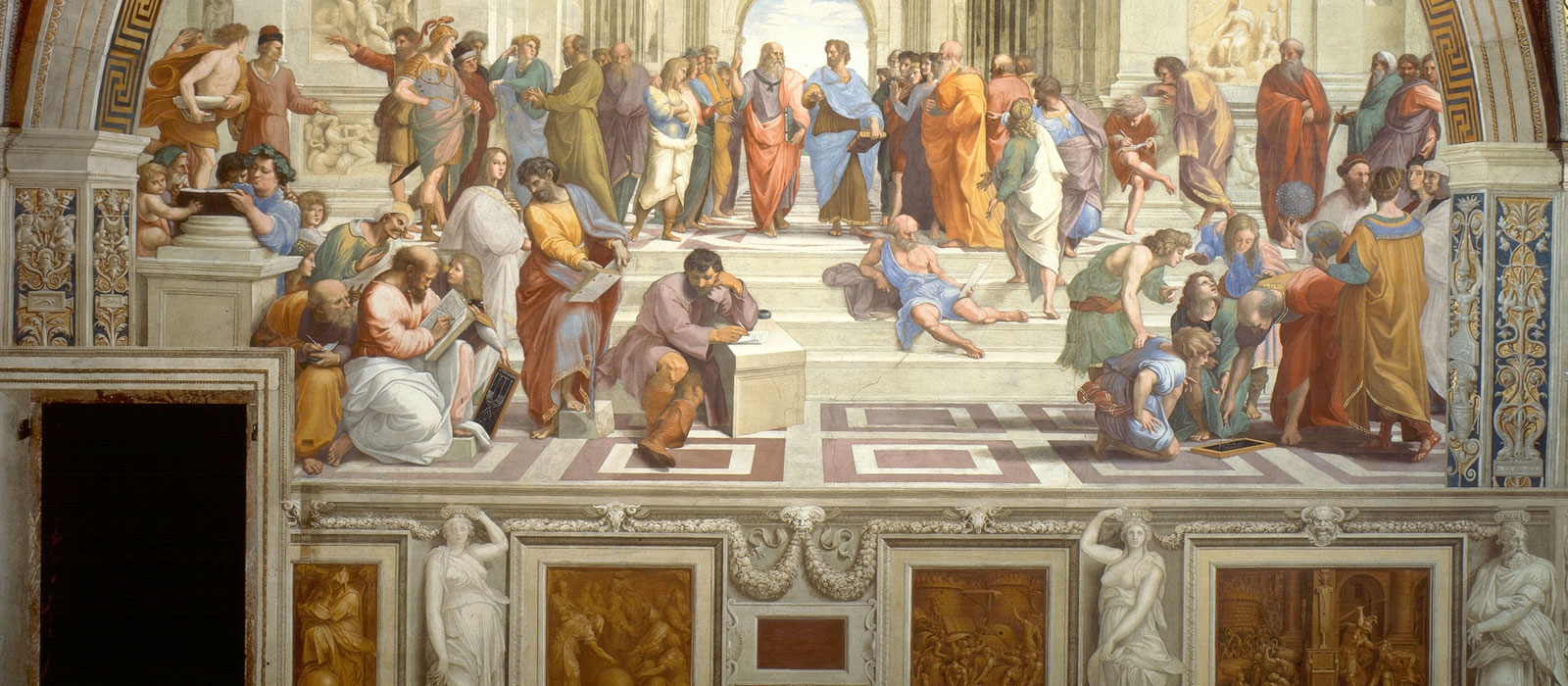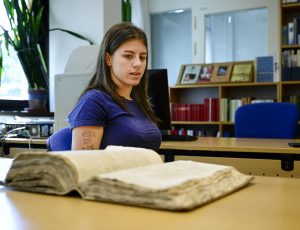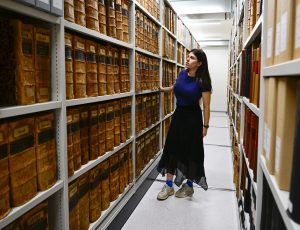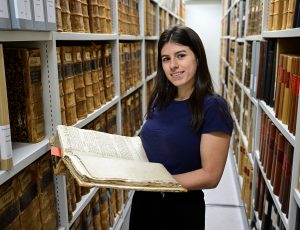Endowed in 2016 through the generosity of the Maurice Price Foundation, internships are made available annually by the Director of the College of the Humanities, to promising, full-time students proceeding from one year to another in a program within the College of the Humanities. These internships are intended to assist full-time returning undergraduate students in gaining summer research experience. Application is required.
Recipients of the Maurice Price Foundation Summer Research Internship
Summer 2024
Christos Zigoumis – Cunning Greeks: the Christian reinterpretation of Greek and Roman spolia in Greek churches and geographical trends of spoliation in Greece
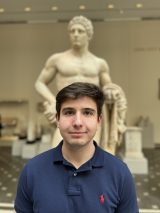 Spolia is any material that has been deliberately taken from an older building and incorporated into a newer building. Within the context of the Graeco-Roman world, spolia is most typically prevalent in the form of classical Greek or Roman art and architecture incorporated in some way into churches. In my research, I will focus on spolia in Greece and the many hundreds of churches that contain them. I will attempt to map every example of spoliated churches in Greece, and discuss the geographical distributions of these churches, and why this may be the case, as well as any discrepancies. The three main reasons for using ancient artifacts and building materials in Greek churches are: practicality, aesthetic value, and ideological. I am particularly excited to explore the ideological role spolia played in Byzantine churches, and whether including spolia was more a form of damnatio memoriae (damnation of memory) or interpretatio Christiana (Christian interpretation). For example, early Christians seemed to have likened figures such as Heracles to that of Jesus, and Theseus to that of St. George, especially in art depicting them. However, some early Christians did deliberately destroy many classical monuments and statues, the fates of Delphi and other sanctuaries are popular examples. Where does spolia depicting classical art fit into this? Ancient Greek or Latin inscriptions are also relatively common spolia in Byzantine churches, I don’t believe that these were placed in churches for the sole purpose of building material. What do they say in the context of the churches they are in? How did Christians view and read these inscriptions? To answer these questions, I will deeply analyze three churches with a lot of significant spolia. I will also travel to Greece this summer to visit and photograph the churches I am to discuss. Spolia in Byzantine Greece shows the slow and eventual transformation of Greeks from the Ancient Greek religion to Christianity, at an interesting time when pagans and Christians lived alongside one another.
Spolia is any material that has been deliberately taken from an older building and incorporated into a newer building. Within the context of the Graeco-Roman world, spolia is most typically prevalent in the form of classical Greek or Roman art and architecture incorporated in some way into churches. In my research, I will focus on spolia in Greece and the many hundreds of churches that contain them. I will attempt to map every example of spoliated churches in Greece, and discuss the geographical distributions of these churches, and why this may be the case, as well as any discrepancies. The three main reasons for using ancient artifacts and building materials in Greek churches are: practicality, aesthetic value, and ideological. I am particularly excited to explore the ideological role spolia played in Byzantine churches, and whether including spolia was more a form of damnatio memoriae (damnation of memory) or interpretatio Christiana (Christian interpretation). For example, early Christians seemed to have likened figures such as Heracles to that of Jesus, and Theseus to that of St. George, especially in art depicting them. However, some early Christians did deliberately destroy many classical monuments and statues, the fates of Delphi and other sanctuaries are popular examples. Where does spolia depicting classical art fit into this? Ancient Greek or Latin inscriptions are also relatively common spolia in Byzantine churches, I don’t believe that these were placed in churches for the sole purpose of building material. What do they say in the context of the churches they are in? How did Christians view and read these inscriptions? To answer these questions, I will deeply analyze three churches with a lot of significant spolia. I will also travel to Greece this summer to visit and photograph the churches I am to discuss. Spolia in Byzantine Greece shows the slow and eventual transformation of Greeks from the Ancient Greek religion to Christianity, at an interesting time when pagans and Christians lived alongside one another.
- Supervisor: Professor Laura Banducci
- Abstract
Summer 2023
Thora Asudeh – A Study on the Unexamined Reformation History of Åland Islands

Åland Islands is an archipelago in the Baltic Sea. It is a self-governing, Swedish-speaking province (autonomous region) within Finland. It is also my second home. In this project, I will investigate 16th century reformation movements on Åland. The Reformation on Åland has not been closely observed despite the island’s intertwined Lutheran identity, church history, and unique culture. Åland’s scholarly tradition began with the sentiment of looking back at historical, archeological, and linguistic sources to find evidence for a distinct Åland identity that separates the island from Finnish or Swedish identities. Recently, the focus of Åland historical studies has moved towards disputing historical assumptions drawn from nationalist motivations to create a more objective view of Åland’s past. This could account for overlooked primary sources, and why the Reformation movement on Åland has received little attention. I will spend my summer examining the primary sources available in Åland’s archives, speaking to local experts, and exploring key sites like Kastleholm (a castle on the island where significant Swedish figures stayed through the 16th century). This project can fill a substantial gap in writing about Åland’s history during the 16th and 17th centuries. Moreover, I hope to highlight the importance of micro-history in understanding larger historical and religious studies and contribute to the discussion that there was no one “Reformation,” rather many reformations responding to similar challenges, influences, and motivations.
- Supervisor: Professor Johannes Wolfart
- Abstract
This is a news article written about Thora Asudeh’s summer research from one of the local newspapers on Åland, Ålandstidningen. The translation can be found here.
Summer 2022
Jeremy Garbe — The Effects of Genre and Narrative on Philosophical Writings: An Exploration of the Merits of Philosophical Literature
 One of the main goals of a philosopher is to convey their ideas to others in a coherent way. A philosopher must choose what structure, language, style, and genre will be conducive to the flourishing of their ideas. In this project, I will research the origin and development of philosophical literature to better understand its argumentative merits. I will compare genres of philosophical literature such as dialogues poems, novels, and plays, with more formal modes of conveying ideas such as essays, treatises, and letters. I will then set out to showcase why philosophers throughout history have decided that the merits of philosophical literature, a form open to the reader’s interpretation, are worth the risk of being misunderstood and misconstrued, thus outlining its place in the philosophical discourse of today.
One of the main goals of a philosopher is to convey their ideas to others in a coherent way. A philosopher must choose what structure, language, style, and genre will be conducive to the flourishing of their ideas. In this project, I will research the origin and development of philosophical literature to better understand its argumentative merits. I will compare genres of philosophical literature such as dialogues poems, novels, and plays, with more formal modes of conveying ideas such as essays, treatises, and letters. I will then set out to showcase why philosophers throughout history have decided that the merits of philosophical literature, a form open to the reader’s interpretation, are worth the risk of being misunderstood and misconstrued, thus outlining its place in the philosophical discourse of today.
- Supervisor: Professor Erik Stephenson
- Abstract
Summer 2021
Nandini Gokhale — The Symbols of the Hindutva Movement
 This project intended to examine the use of symbols in Hindu nationalist circles to gain an understanding of the values those symbols communicate. While the beginnings of the Hindutva movement can be found in India’s struggle for independence from the British empire, more recently, the religious nationalist ideology of these groups has caused violence between Hindus and minority religious communities in India. By analyzing the common imagery these groups employ in promoting their ideology, this study aimed to understand what generates the public appeal of this ideology as well as what the underlying, sometimes unspoken, values of these groups are.
This project intended to examine the use of symbols in Hindu nationalist circles to gain an understanding of the values those symbols communicate. While the beginnings of the Hindutva movement can be found in India’s struggle for independence from the British empire, more recently, the religious nationalist ideology of these groups has caused violence between Hindus and minority religious communities in India. By analyzing the common imagery these groups employ in promoting their ideology, this study aimed to understand what generates the public appeal of this ideology as well as what the underlying, sometimes unspoken, values of these groups are.
- Supervisor: Professor Noel Salmond
- Abstract
Summer 2020
Mercedes Belaiche — A Formal Study of American Dream Novels
 The purpose of this study was to identify the narrative expression of the American Dream as a way of mapping out its conceptual development in the context of America’s socio-political environment. The American Dream was at the heart of cultural discourse in the early 20th century just as much as it is today, its conception intrinsically tied to the sociopolitical environment it is expressed in. This research endeavours to map out the development of the American Dream through narrative, shedding light on the common myths binding Americans together in an increasingly divided cultural landscape.
The purpose of this study was to identify the narrative expression of the American Dream as a way of mapping out its conceptual development in the context of America’s socio-political environment. The American Dream was at the heart of cultural discourse in the early 20th century just as much as it is today, its conception intrinsically tied to the sociopolitical environment it is expressed in. This research endeavours to map out the development of the American Dream through narrative, shedding light on the common myths binding Americans together in an increasingly divided cultural landscape.
- Supervisor: Professor Ian Cameron
- Abstract
Claire French — Dante’s De Monarchia and the City in Western Philosophy
 In undertaking this project, I set out to examine the genesis of the particular strain of philosophy that is associated with medieval Christian scholastics. This philosophy, as found in the political works of Dante Alighieri and St. Thomas Aquinas, is defined in large part by its strong arguments for centralizing political power within a monarchy. However, it is also defined by the positive stance it takes toward the concept of politics. Unlike those political works descending from the thought of St. Augustine, this later political philosophy argues that political life is not only natural but in some sense necessary for the good of all of humanity.
In undertaking this project, I set out to examine the genesis of the particular strain of philosophy that is associated with medieval Christian scholastics. This philosophy, as found in the political works of Dante Alighieri and St. Thomas Aquinas, is defined in large part by its strong arguments for centralizing political power within a monarchy. However, it is also defined by the positive stance it takes toward the concept of politics. Unlike those political works descending from the thought of St. Augustine, this later political philosophy argues that political life is not only natural but in some sense necessary for the good of all of humanity.
- Supervisor: Professor Erik Stephenson
- Abstract
Katherine Surkan — Best Guesses and Cutting Open Testicles: Theoretical and Practical Knowledge of Sex and Gender in Early Modern England
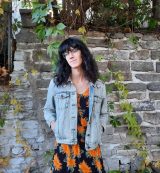 Throughout the Medieval and early modern periods, European academic medicine was largely reliant upon classical Greek and Roman texts predominantly written by the Greek and Roman physicians Hippocrates and Galen. As a result of this, academic European anatomy was largely based on educated guesses, animal organs, and straight-up falsehoods up until the re-emergence of common-place human dissection in the 14th and 15th centuries. With this came an influx of new medical and anatomical discoveries and techniques, many of which were discordant with the information taught by Hippocrates and Galen. In particular, modern anatomical dissection harshly refuted ancient ideas on human genitalia, specifically Galen’s theory of the one-sex model.
Throughout the Medieval and early modern periods, European academic medicine was largely reliant upon classical Greek and Roman texts predominantly written by the Greek and Roman physicians Hippocrates and Galen. As a result of this, academic European anatomy was largely based on educated guesses, animal organs, and straight-up falsehoods up until the re-emergence of common-place human dissection in the 14th and 15th centuries. With this came an influx of new medical and anatomical discoveries and techniques, many of which were discordant with the information taught by Hippocrates and Galen. In particular, modern anatomical dissection harshly refuted ancient ideas on human genitalia, specifically Galen’s theory of the one-sex model.
- Supervisor: Professor Johannes Wolfart
- Abstract
